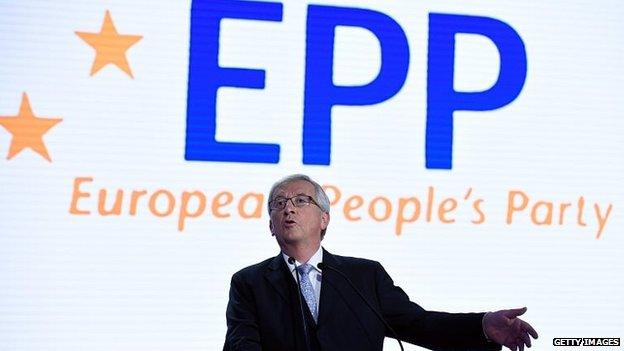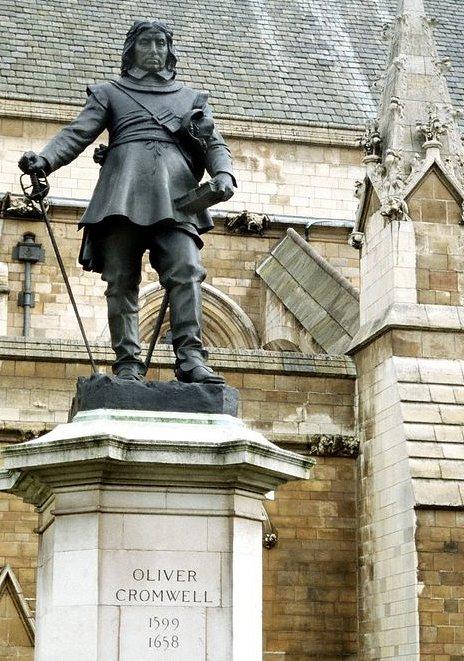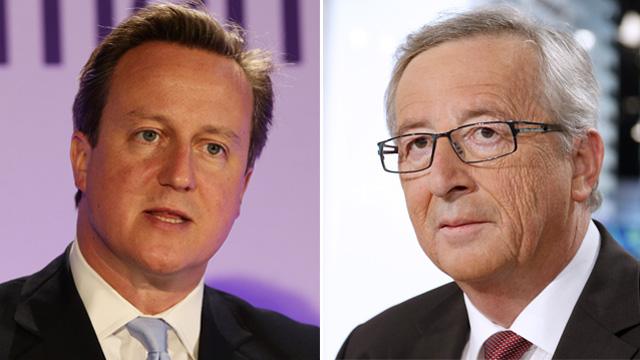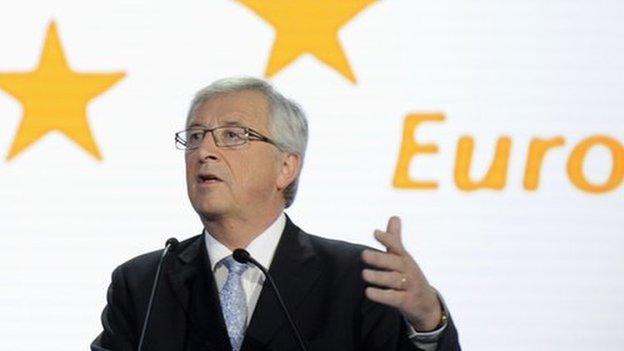Europe - who decides?
- Published

The battle is over the choice of Juncker (above) and the power European Parliament groups should have
Who decides who should run Europe? That's the question which threatens to split the EU this week and could, ultimately, lead to the UK leaving the world's most powerful club of nations.
To many that will read as a hyperbolic Brito-centric view of the battle over who should be the EU's top official - the President of the European Commission. It's a battle which it is now clear that David Cameron risks not just losing but ending up in a minority of one (or possibly two) at this week's EU summit.
Isn't this row, they will ask, like all those that have gone before it - whether Mrs Thatcher swinging her handbag in defence of "our money" or John Major fighting for opt-outs from the social chapter and the euro or Tony Blair fighting to keep the rebate? Won't it all blow over once the behind-the-scenes deal-making ensures that David Cameron is given something to hide his embarrassment?
This time may be different. The reason is that there is a hugely significant power struggle which underlies the argument about whether Jean-Claude Juncker is the right man to be the top Eurocrat in Brussels. It pits national leaders and parliaments against European ones.
In one corner are those who believe that the decision should be taken by the European Parliament which speaks for the peoples of Europe. In the other are those who argue that only national leaders have the democratic legitimacy to pick the man or woman who will have so much power.
Juncker's claim to the job rests on democracy, say his supporters. He was the candidate of the biggest bloc in the European Parliament (the European People's Party which brings together centre-right parties from across the EU but, crucially, not the Conservatives). He claims a mandate after a series of televised presidential debates.
'Juncker no Charles II'
The British view - which is, unusually, shared by all three main party leaders - is that to give the European Parliament this power is dangerous. It will undermine democracy in the member states and is based on a false premise - that voters in Frankfurt or Boulogne or Riga were weighing up who was the best person to lead the European Commission.
Outside Parliament stands a statue of Oliver Cromwell - a leader in the battle over the rights of parliament here at home.

David Cameron is no Cromwell and Juncker is no Charles I but the argument about where power should lie is not one to be taken lightly and one that matters a whole lot more than the horse trading between David, Angela, Jean-Claude and all the rest.
- Published23 June 2014

- Published15 July 2014

- Published22 June 2014